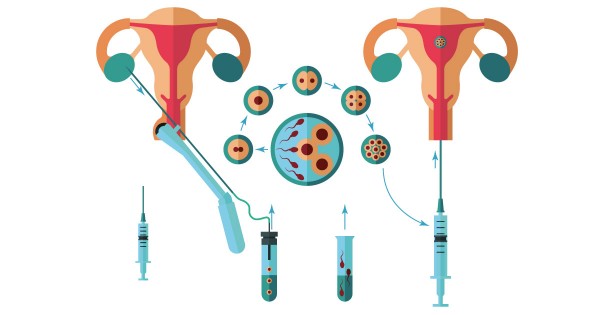The inability to conceive can be stressful and often, a heart-breaking situation for the couple. According to the World Health Organisation (WHO), infertility is defined as the failure to achieve pregnancy after 12 months or more of regular, unprotected sexual intercourse.
Although advances in assisted reproductive technologies such as in vitro fertilisation (IVF) can offer hope to the infertile couple, the psychological impact of infertility is often overlooked. The impact may begin prior to diagnosis of infertility as the difficulty conceiving affects the couple’s self-esteem. Indeed, some patients consider evaluation and treatment of infertility to be the most upsetting experience of their lives.
How can infertility affect your life?
Self-esteem: Procreation is an important human need and because of this, couples unable to conceive face tremendous pressure and psychological distress (shame, regret, guilt, depression, anxiety, feelings of worthlessness). The most disturbing emotional consequences of infertility is the loss of control over one’s life. Many of them will place their fertility as the focal point of daily tasks and put their lives on hold (postponing vacations and short-changing their careers). Infertility may erode their self-esteem and the problem can be significantly worse when they are highly successful in other areas of life and, have not developed the coping skills to deal with failure and loss.
Relationships: Relationships may suffer not only between the couple, but also with family and friends. The relationship can be strained because of fears that the fertile partner will leave the infertile partner. Furthermore, the stress of the evaluation and treatment may make it difficult for each individual to provide the emotional support for each other. Unfortunately, this occurs at a time when they need the emotional support and intimacy the most. Another factor that may disrupt marital satisfaction is the need to have sex at specified times. Sex becomes a chore with diminishing intimacy and spontaneity. The relationship between friends and family may also be affected. They mean well when they ask about their plan for parenthood. However, it can be painful having to answer those questions. In extreme cases, the couple will resort to isolation and may stop attending social functions with kids around.
Health: The evaluation process can be timeconsuming, ranging from simple blood tests to invasive procedures. The results may reveal medical or surgical conditions that contribute to the cause of infertility. This usually comes as a surprise to many couples as they are generally healthy. While medical interventions offer much-needed hope and remedy, they may add to the stress, anxiety, and grief that patients are already experiencing from infertility itself. Furthermore, if a treatment cycle fails, almost all couples report acute depression.
Finance: The cost of infertility treatment is significant. Not being able to afford treatment may contribute to the feeling of helplessness and hopelessness. Even in the best of times, the financial burden can exert enormous strain on a couple’s relationship.
Coping with infertility
Acknowledging infertility: The psychological burden of infertility is well documented and recognising it is the first step towards realising the dream of parenthood. Accepting it is the key to coping so that the couple can move forward and seek advice from a professional.
Don’t blame yourself or your partner: Blaming is destructive and counterproductive. Don’t get caught in negative thinking patterns that will only make matters worse. Instead of thinking about what ‘should have’ or ‘could have’ been, focus on what ‘can be’ done.
Allow time to grieve and let your significant other do the same. Everyone has their own way of getting over emotional stress and it is important to be patient and tolerant of each other. Unresolved grieving can be a major source of anxiety.
Communicate with your partner: Mutual support and working as a team is important during this testing time. Both men and women generally respond differently to the stress of infertility. Tell your partner how you want to be helped and work together to find practical ways to share the burden.
Understanding infertility: Learn more about fertility problems and ask your doctor questions about it. One of the main stressors is uncertainty about the future. Collecting more information and talking to other people who are going through infertility can help a couple make informed choices. Support groups are also a good place to learn and gather information about treatment, as well as build new friendships.
Take care of your health and pursue other interests: Studies have also shown that individuals who practice a healthy diet coupled with regular physical activity, have a higher chance of a successful pregnancy following treatment. Undergoing fertility treatment can feel like a full-time job. It’s important to keep up with some hobbies that bring pleasure.
Stay realistic: Couples must realise that no matter how hard they try to become pregnant and no matter how advanced the assisted reproductive technologies are, no one can guarantee a successful outcome. Couples must learn how to balance optimism and realism.
Set your budget: There is no doubt that infertility treatment will set you back financially and, often women need to go through multiple cycles before becoming pregnant. Couples contemplating fertility treatment should first determine all the direct and indirect expenses.
Develop your spirituality: Many people find peace of mind through religious involvement. Others prefer to pray or meditate on their own. Faith can be a very powerful tool to get you back on track and rediscover purpose in life.
The psychological impact of infertility is tremendous. However, if couples can overcome the obstacles, the return can be priceless.
An educational collaboration with Obstetrical and Gynaecological Society of Malaysia.








Comments